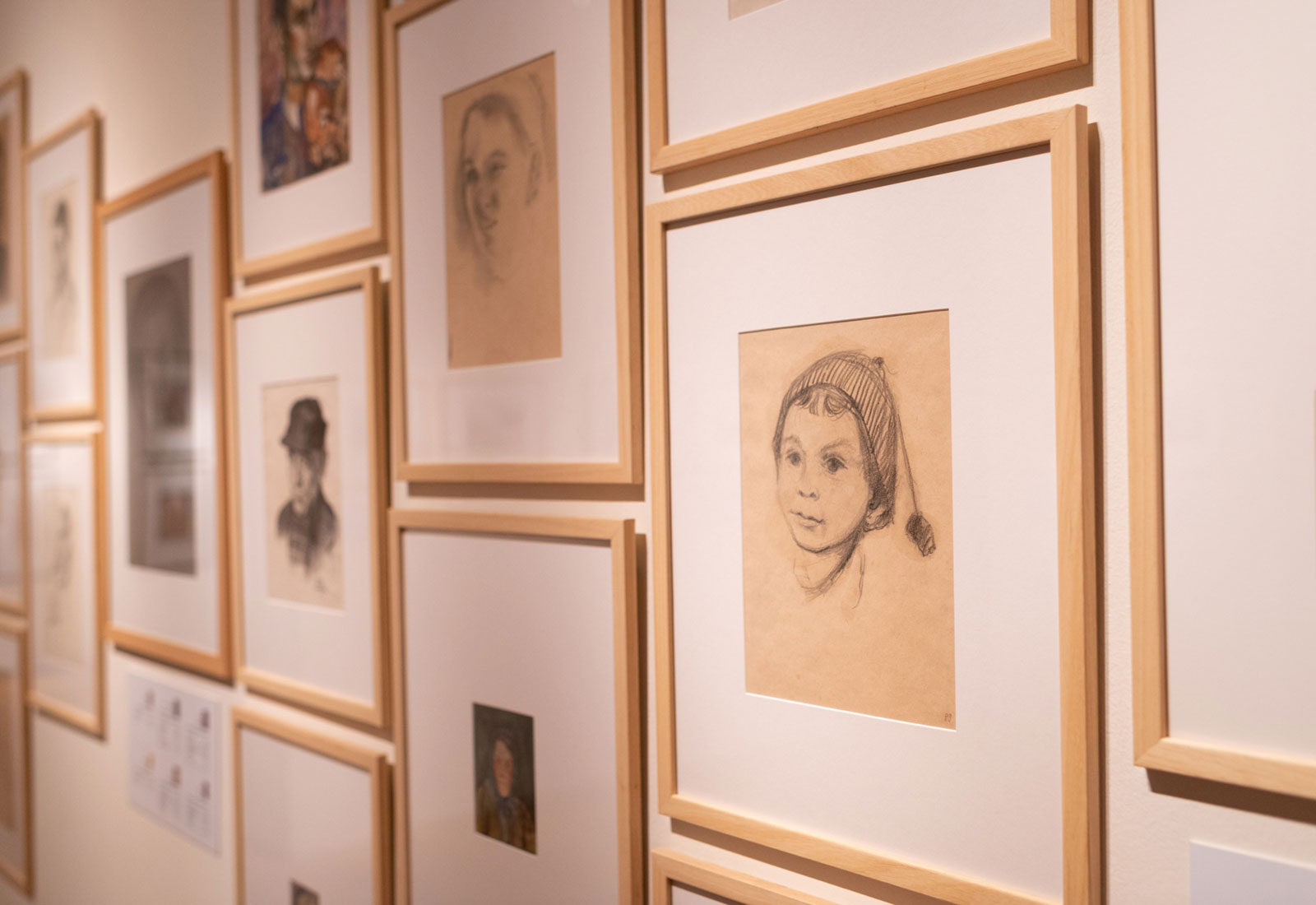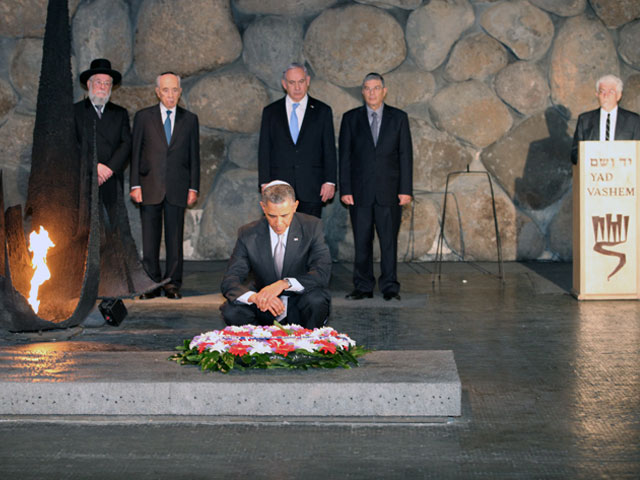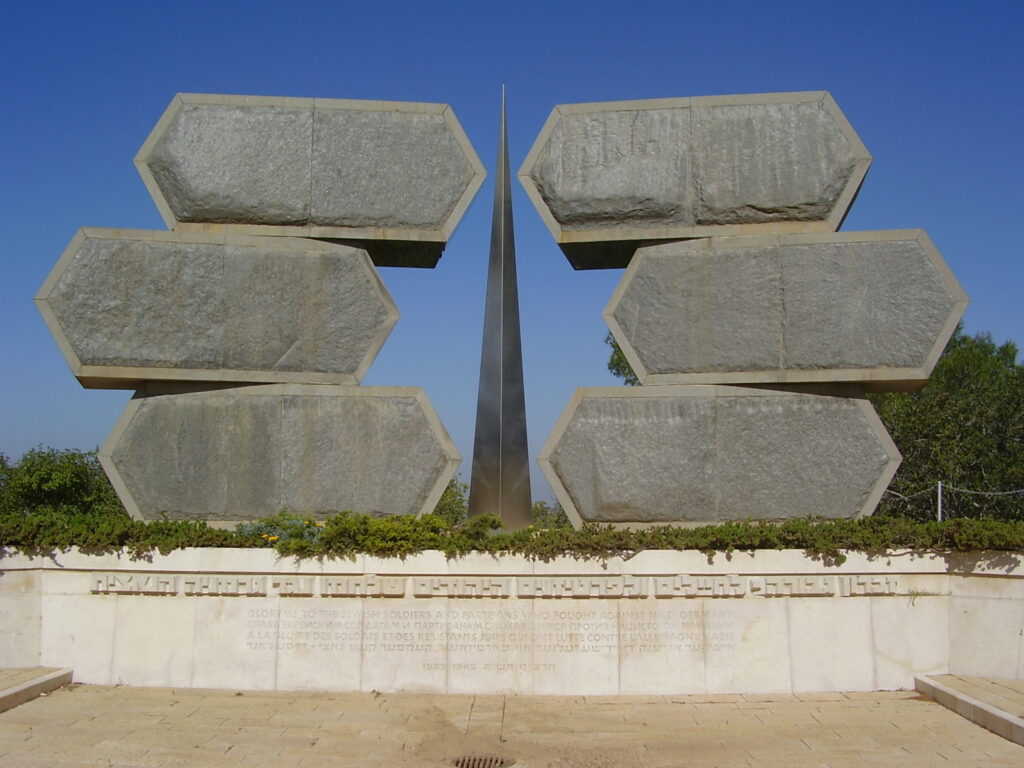Commemorating Courage at Yad Vashem: A Must-Visit Destination

Introduction
Overview of Yad Vashem
Yad Vashem in Jerusalem stands as Israel's official memorial to the victims of the Holocaust. Established in 1953, this sacred site offers a profound space for remembrance, education, and commemoration. Spanning over 45 acres, the memorial features a museum, research centre, and various monuments that tell the stories of millions who suffered during this dark period in history. It serves as a comprehensive educational resource, guiding visitors through the narrative of the Holocaust with sensitivity and accuracy.
Significance of Commemorating Courage
Commemorating courage amidst adversity is vital for fostering resilience and hope. Yad Vashem not only remembers those who perished but also honours the brave individuals who risked their lives to save others. Recognising these acts of bravery can motivate you to stand against injustice today. Consider:
- The importance of sharing stories of heroism.
- The inspirational power of courage in overcoming fear.
- The necessity of memorialising those who resisted oppression.
By discussing such acts of valour, Yad Vashem cultivates a spirit of remembrance and hope for future generations.

History of Yad Vashem
Establishment and Mission
Yad Vashem was established in 1953 with a mission that transcends mere remembrance. Founded on a vision to give dignity and voice to Holocaust victims, it serves as a beacon of education and reflection. The initiative began with the efforts of Holocaust survivors and activists who understood the need to document these atrocities for future generations. Today, Yad Vashem's mission includes:
- Preserving the memory of the Holocaust.
- Educating the public about its history.
- Combating antisemitism and promoting tolerance.
Holocaust Remembrance
Holocaust remembrance is at the core of Yad Vashem’s identity. It offers visitors a space to confront and reflect on the horrors of this period. Key aspects of Holocaust remembrance include:
- The Hall of Names records the identities of the victims.
- Annual commemorative events, such as Yom HaShoah, which bring people together to remember and honour those who suffered.
Through these efforts, Yad Vashem not only honours the past but also ignites the critical dialogue needed to shape a better future.
Architecture and Layout
Design of the Museum
The design of Yad Vashem is as meaningful as the history it preserves. The museum was crafted to guide visitors through a poignant narrative of the Holocaust. Architect Moshe Safdie’s vision reflects the journey from darkness to light. As you walk through the museum, you'll experience:
- A unique triangular shape that symbolises the arrow of time.
- Natural light filtering in, representing hope amidst despair.
- Exhibits that showcase personal stories, allowing visitors to connect emotionally with the past.
In essence, the layout creates an immersive experience, drawing you into the history in a way that resonates deeply.
Gardens and Memorials
Surrounding the museum are beautifully landscaped gardens and memorials that evoke further contemplation. These spaces are designed not just for beauty, but as a part of the remembrance mission. Here are a few highlights:
- The Garden of the Righteous Among the Nations, honouring non-Jews who saved Jewish lives during the Holocaust.
- The Children’s Memorial, a poignant reminder of the lives lost, enveloping visitors in a reflective atmosphere.
These gardens and memorials intentionally blend nature with remembrance, creating a serene backdrop that invites introspection.

Permanent Exhibits
Hall of Names
The Hall of Names is truly a heart-wrenching yet vital component of Yad Vashem. This exhibit serves as a living memorial for the millions of Jews who perished during the Holocaust. You’ll quickly notice how this space is designed to engage visitors in a personal way. Within the Hall, you can find:
- A vast wall of photographs representing the victims, encouraging a connection between the past and the present.
- Recorded testimonies of survivors, offering firsthand accounts that highlight their resilience and bravery.
- The opportunity to submit names of victims that may not yet be recorded, making the hall an evolving tribute.
Holocaust Art Museum
The Holocaust Art Museum adds a unique dimension to the permanent collections at Yad Vashem. Art serves as a powerful medium to express emotions and experiences, and this museum captures that essence beautifully. In this museum, you can explore:
- Diverse artistic expressions reflecting the pain, loss, and resilience experienced during the Holocaust.
- Works created by survivors, which serve as both historical documentation and personal expression.
The blend of art and history here not only deepens your understanding but also evokes empathy, reminding you of the profound human experience behind these harsh realities.

Temporary Exhibitions
Current Exhibits
Temporary exhibitions at Yad Vashem are a dynamic part of its offerings, continually engaging visitors with fresh perspectives on the Holocaust and its implications. Currently, you might find exhibits that focus on specific themes, such as the experiences of children during the Holocaust or the actions of Resistance fighters. For example, a recent exhibit titled "Voices from the Shadows" highlighted:
- Personal letters and diaries, providing poignant insights into daily life during the Holocaust.
- Photographs and documents that humanise the stories behind historical events.
These exhibits encourage you to delve deeper into personal tales, fostering a more nuanced understanding of this complex history.
Past Exhibitions
Yad Vashem has hosted numerous thought-provoking exhibitions over the years, some leaving a lasting impact. For instance, an exhibit on "Resistance and Rescue" not only showcased the struggles of those who fought against oppression but also celebrated the courage of those who helped save lives. Consider these highlights from past exhibitions:
- Interactive displays that allowed for personal exploration of lesser-known stories.
- Artistic interpretations that captured the essence of resilience amidst destruction.
These temporary exhibitions contribute significantly to Yad Vashem’s mission by ensuring that new narratives and interpretations of Holocaust history continue to be explored and shared.
Educational Programs
Guided Tours
Yad Vashem offers a range of guided tours that enrich your experience and deepen your understanding of Holocaust history. These tours are led by knowledgeable guides who bring expert insights and personal anecdotes to the forefront. Whether you're visiting alone, with friends, or part of a group, these tours create a meaningful connection with the site. Here’s what to expect:
- Engaging storytelling that brings historical figures and stories to life.
- Access to lesser-known facts that often go unattended, enhancing your learning experience.
- Tailored tours for different age groups, ensuring relevancy and engagement for everyone involved.
Educational Workshops
In addition to guided tours, Yad Vashem offers interactive educational workshops designed to explore specific themes of the Holocaust. These workshops often involve group discussions, activities, and reflection. Features of these workshops include:
- Hands-on activities that encourage participants to delve into topics like resistance and survival.
- Collaborative learning environments, allowing attendees to share perspectives and insights.
- Diverse programs tailored for educators, helping teachers incorporate Holocaust education into their curricula.
Both guided tours and workshops provide valuable opportunities to engage, reflect, and learn—all crucial elements in the collective effort to ensure the lessons of the Holocaust endure.

Research Center
Resources Available
Yad Vashem’s Research Center is a treasure trove of resources specifically designed for scholars, educators, and anyone interested in deepening their understanding of Holocaust history. This centre stands out for its extensive collection and commitment to education. Among the resources available, you can find:
- Archival materials, including documents, photographs, and testimonies that provide firsthand accounts of the Holocaust.
- Access to a comprehensive library, featuring books, articles, and periodicals focused on various aspects of Jewish history and the Holocaust.
- Digital resources, allowing easy access to a wealth of material from anywhere in the world.
Scholarly Publications
In addition to its impressive collection, the Research Center regularly produces scholarly publications that contribute to the broader field of Holocaust studies. These publications showcase original research, analysis, and insights. Highlights include:
- Journals that feature articles from prominent historians and researchers.
- Conference proceedings showcasing the latest discussions and findings from various Holocaust-related topics.
- Books and monographs that cover themes ranging from survivor testimonies to the implications of Holocaust studies in contemporary society.
These resources and publications not only enhance academic research but also inspire critical dialogues about memory, history, and the importance of remembrance.

Remembrance Ceremonies
Annual Events
At Yad Vashem, remembrance ceremonies play a crucial role in ensuring that the Holocaust is never forgotten. One of the most significant annual events is Yom HaShoah, Holocaust Remembrance Day, which draws thousands of participants from around the world. During this solemn occasion, you can expect:
- Candle-lighting ceremonies, where survivors and descendants honour their loved ones.
- Public speeches from dignitaries and survivors that highlight the importance of remembrance and resilience.
- Musical performances that encapsulate the emotional weight of the day, creating an atmosphere of reflection and community.
Memorial Services
In addition to annual events, Yad Vashem hosts various memorial services throughout the year, allowing people to come together in solidarity and remembrance. These services often coincide with significant anniversaries or the unveiling of new memorials. Key aspects of memorial services include:
- Moments of silence for personal reflection and respect for the victims.
- Testimonies and stories shared by survivors, bridging the gap between past and present.
- Floral tributes laid at memorial sites, symbolising respect and remembrance.
Through these ceremonies, Yad Vashem fosters a collective memory, ensuring that the stories of those lost are preserved and honoured, nurturing a commitment to prevent such atrocities in the future.

Righteous Among the Nations
Recognition of Heroes
Yad Vashem's Righteous Among the Nations honours the incredible bravery of non-Jews who risked their lives to save Jews during the Holocaust. This unique programme acknowledges that amidst the horrors, there were individuals who chose to act with courage and compassion. Each year, Yad Vashem:
- Awards the title to new candidates whose stories illuminate the extraordinary kindness in dark times.
- Hosts ceremonies to formally recognise these heroes, often attended by their descendants, providing a heartfelt connection to the past.
- Maintains detailed records of each individual’s efforts, ensuring their stories are preserved for future generations.
Stories of Courage
The stories featured in this programme are deeply moving and often highlight the risks taken by ordinary people. For instance, one notable story is of Oskar Schindler, who saved over 1,000 Jews by employing them in his factories. By showcasing such narratives, Yad Vashem ensures that the bravery of these individuals is immortalised. These stories of courage not only serve as a powerful reminder of humanity’s capacity for good but also inspire us to act bravely in our everyday lives, reinforcing the commitment to stand against injustice wherever it arises.

Virtual Tours
Online Resources
In an age where accessibility is paramount, Yad Vashem offers a range of virtual tours and online resources that allow you to explore its profound history from anywhere in the world. These resources are designed to engage and educate, making Holocaust history available to a broader audience. You’ll find:
- Virtual exhibitions that replicate the museum experience, complete with in-depth narratives and photographs.
- Documentaries and interviews featuring survivors and historians, providing personal insights into the Holocaust.
- Educational materials for teachers and students to facilitate learning and discussion on sensitive topics related to the Holocaust.
Interactive Exhibits
To enhance the virtual experience, Yad Vashem has also developed interactive exhibits that immerse you in the narratives of those who lived through this tragic period. These exhibits include:
- Digital archives enable you to explore personal testimonies and explore artefacts up close.
- Interactive timelines that visually illustrate the events of the Holocaust, making it easier to understand the chronological flow of history.
With these virtual offerings, Yad Vashem ensures that the lessons of the past are not only preserved but also made accessible to future generations, cultivating awareness and remembrance worldwide.
Visitor Information
Hours of Operation
Planning your visit to Yad Vashem is an exciting step towards experiencing this significant site. The museum is generally open to the public from Sunday to Thursday, with hours typically running from 9:00 AM to 5:00 PM. On Fridays, the museum opens at 9:00 AM and closes early at 2:00 PM, and it's important to note that the museum is closed on Saturdays and major Jewish holidays. To ensure your visit goes smoothly, consider:
- Checking the official website for any special events or holiday hours.
- Arriving at least a few hours before closing for a thorough experience.
Ticket Prices
Admission to Yad Vashem is free, which allows everyone to engage with its rich educational resources and memorials without financial barriers. However, for specific programs or guided tours, a nominal fee may apply.
- Guided tours cost around $10 per person, depending on the type and duration.
- Educational workshops may have their own pricing, so it’s wise to check in advance.
With these details in hand, you're well on your way to a meaningful visit to Yad Vashem, where history comes alive and memory is honoured.
How to Support Yad Vashem
Donations
Supporting Yad Vashem can be incredibly impactful, and one of the most straightforward ways to contribute is through donations. Your contributions help preserve the memory of the Holocaust and ensure that future generations are educated about this crucial history. When considering a donation, here are some options:
- One-time gifts that can be allocated to specific projects, such as educational programs or exhibitions.
- Monthly contributions that secure ongoing support for Yad Vashem’s initiatives.
- Legacy gifts that allow you to include Yad Vashem in your estate planning, ensuring a lasting impact.
Volunteer Opportunities
If you’re inclined to get involved more actively, volunteering is another rewarding way to support Yad Vashem. Volunteers play a vital role in enhancing the visitor experience and conducting educational programs. Opportunities may include:
- Assisting at events or during peak visiting seasons.
- Becoming a tour guide for groups, if you have a background in history or education.
- Participating in outreach programs to promote Holocaust awareness in schools and communities.
By supporting Yad Vashem through donations or volunteering, you help honour the memory of those lost and ensure that their stories are shared for generations to come.
